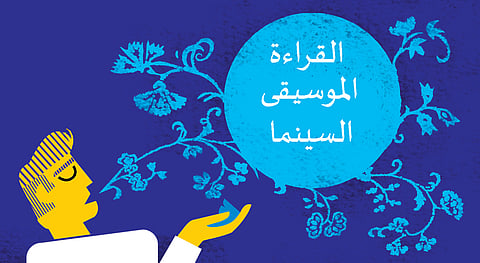We must make Arabic more attractive
The days of the colonisers are indeed long gone, but you do not need to see any soldiers to feel the effects of colonisation

I was once interviewed by a top international firm for a position in their company. It was a routine, straightforward interview and nothing stood out except for one question, which the British lady on the other side of the phone asked politely: “I am sorry Hatem, you might think this is silly but I have to ask: how is your Arabic? I know you are Arab and it is your first language, but honestly, how good is it?” I did not think it was a silly question. Arabic, after all, is a difficult language, more complex than English, and were it not for my current job, I personally would not have been able to write a proper letter in Arabic, as my education unfortunately was not sufficient.
One thing came to my mind later that day: the 132-year French colonisation of Algeria. The aim of this article is not to dissect the events of the French reign over Algeria, but to highlight some of the rules that were enforced under the French. From the outset, the local Algerian economy was upset and Islamic establishments, schools and charitable foundations were dismantled as part of a ‘civilising’ drive. Additionally, to become full French citizens, Algerian Muslims had to reject Islamic religious law and abide by the French civil code. The French also enforced a law that allowed them to alter individuals’ names whereby they would erase the surname or tribal name in order to break the connection between a man and his roots. Most important, though, was the fact that the French took away what gave Algerians their ethnic identity when they relegated Arabic to the status of a foreign language and made French the official language of the state. The French tried to destroy any link between the Algerians and their cultural and historical roots, and enforced the French language, even in schools. Algeria gained independence in 1962, but it still has the remnants of the colonisation period. Through my personal experience I have found that the majority of Algerians I encounter still prefer to speak French rather than Arabic because it comes more naturally to them — and diplomats are no exemption.
The days of the colonisers are indeed long gone, but you do not need to see any soldiers to feel the effects of colonisation. People of my generation have been pushed towards mastering the English language and have made Arabic a secondary concern, simply because everyone speaks it, right? Well colloquial Arabic is one thing and drafting a declaration or a statement is something else. We, especially in the GCC, have been culturally colonised by the West. We visit the cinemas to watch Hollywood blockbusters, more people visit the shisha coffee shops to watch the English Premier League than local stadiums to watch the local league, and we tend to listen to English songs and even understand rap slang. It is indeed shameful when you watch a local show and see that one of the local contestants can’t even put one sentence of Arabic together and, even worse, that that is completely acceptable to the judges.
This is an issue to address on the macroscopic level. It is wonderful that the majority of us are bilingual, but most definitely, Arabic cannot be the secondary language. Arabic defines who we are. It is our culture, our history and part of our religion, and without it we have no roots and no past. Yes, it is true that even I prefer to watch English sitcoms, Hollywood action movies, and definitely prefer to listen to Virgin radio. But that does not mean I have relinquished my Arab ethnicity.
Foreigners speak the language
There is no shame for a 26-year-old to take Arabic grammar classes, and I learned that the hard way by being embarrassed for not being able to put together a simple memo in Arabic when I first started working. I represented my country in the United Nations, and there I was approached by delegates from China, Brazil and Kazakhstan who spoke perfect Arabic; I also noticed that the Israeli delegation in the Security Council did not even need immediate translation of speeches by Arab delegates. When a foreigner prefers to speak your language when talking to you and his Arabic is better than yours, then this becomes an issue that that can no longer be ignored. I am not saying here that we should ban American movies from the cinemas or revoke Virgin radio’s licence. Instead, we should find ways to make Arabic more attractive.
Arabic is the language of the Quran, and we should educate ourselves into developing a heightened dialect when addressing God in our prayers, even if we accept speaking broken Arabic with each other. We have held events that highlight the beauty of our language, such as the million-dollar poetry and the Arab pure breed horse competitions, as well at the UN Arabic Language Day, but we need to do more.
The French defeated and demoralised their colonies by taking away what made them who they are, what made them unique. In those days it was law, nowadays, whether by choice or neglect, it is largely self-imposed. Even if we accept that a good standard of English is a huge advantage in the modern globalised world, we are shooting ourselves in the foot if we allow this to happen at the expense of relegating our mother tongue to second-class status.
One final thought: when we travel, say for example to England, we are expected to speak in English. But when Britons visit us here in the Arab world, do they even feel the need to speak Arabic?
Hatem Abdulhameed Hatem is a Bahrain-based writer.

